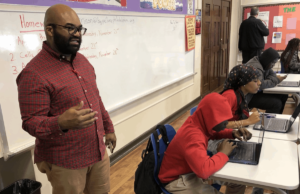Youth Development & College Completion

Our local Boys & Girls Club has really impressive reach and outcomes. Director Shelley Puariea, a 30 year veteran, developed the first Boys & Girls Club teen center called EX3. When you visit her three centers, a culture of youth development is pervasive. You can see and hear a focus on:
- character and leadership
- academic success and career awareness
- health and life skills
It was nice to see the local school districts in attendance at Shelly’s fundraiser this morning; she does a lot to support school success.
Yesterday I spoke with Hilary Pennington, an expert on college and careers. I asked her where there was opportunity to boost college completion rates. She pointed to three key levers:
- Relationships: colleges need learner management systems that build thick and informed relationships with students. Students in online and blended programs produce enough data that it’s easy to monitor their progress and intervene with the first signs of academic difficulty.
- Mentoring: as WGU has figured out, a mentor that tracks and advises student progress significantly boosts completion.
- Focus on outcomes: competency-based systems diagnose specific learning gaps and grant credit for demonstrated knowledge and skill.
I think this is a good list, but few colleges do even one or two of these well. If you take these principles seriously, it suggests a substantially different design than the typical college and random course catalog.
I’ve been thinking about the relationship between the broad youth development principals that underlie successful youth organizations (and families) and the specific opportunities to significantly boost college completion rates. I’m quite optimistic that edupreneurs will develop tools and institutions that gradually boost the percentage of Americans holding a post-secondary credential. I’m a little less optimistic about the percentage of American youth that will grow up within a strong web of support.






Michael Linville
There's a promising program called Posse that focuses on the relationships students make before college to boost their success in college. Their students (many minority from disadvantaged backgrounds) are accepted in top universities and have a 90%+ graduation rate. Pretty remarkable stuff.
www.possefoundation.org
http://opinionator.blogs.nytimes.com/2012/02/15/beyond-sats-finding-success-in-numbers/